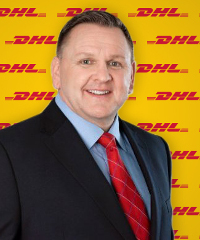Success in Africa requires out-of-the-box thinking
Multinational companies looking to build successful pan-African businesses need to adjust their global strategies to Africa’s unique business environment.
So says Charles Brewer, managing director for sub-Saharan Africa at DHL Express. He attributes DHL’s rapid growth across the continent partly to the fact that the company has tailored its global approach to the realities of the African market.
“If you are prepared to blend your product into Africa, rather than expecting Africa to blend into you, you can get huge returns out of it,” he says.
The prevalence of informal trading and the fact that large numbers of Africans live in rural areas, often present challenges for multinationals to get their products and services to consumers.
“People who buy goods don’t necessarily buy them through modern retail outlets; it is through street trading and an informal trading environment,” says Brewer.
He also sees the continent’s rural consumers as an untapped opportunity. “While servicing customers in the cities is obviously important, the real exciting and new opportunity is to take your product to the semi-rural and rural parts of Africa.”
Brewer says that mobile telecoms operators in Africa have been particularly successful at getting their products into all of these areas.
Mutually beneficial partnerships
Rather than expanding purely by building its own bricks and mortar branches, DHL has accelerated its growth by partnering with numerous third party businesses – from hairdressers to informal shop owners. These businesses double as DHL retail points, and earn a commission on sales.
While many multinationals might frown on the idea of partnering with small shop owners, Brewer says the continent’s large informal retail environment means multinationals can’t deliver their products in exactly the same way as they do in other places of the world. However, DHL chooses it partners carefully to ensure that the company’s brand is represented in the right way.
DHL has also forged retail partnerships with larger companies, such as pan-African fuel retailer Engen. Consumers looking to send documents or parcels overseas can simply walk into one of the many Engen service stations across the continent to send their shipment, ensuring greater convenience and accessibility.
Africa’s growth – a marathon, not a sprint
Through these strategies DHL has grown its number of retail points from 300 to over 2,000 in the past years. But Brewer is not complacent. “We need to have 25,000 service points. And the more we have, the more we will connect Africa with the rest of the world.”
He says there are significant opportunities in linking the continent’s small and medium enterprises with countries outside Africa.
Sub-Saharan Africa is currently one of the fastest growing regions in the world for DHL.
“Despite all the challenges of operating in Africa, the yields are solid and the growth levels very high. At DHL we are seeing good market share gains, and strong volume and profit growth.”
Brewer is optimistic about Africa’s future, but says the continent’s rise will be “more of a marathon than a 100m sprint”.


